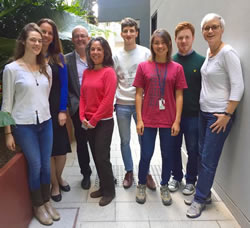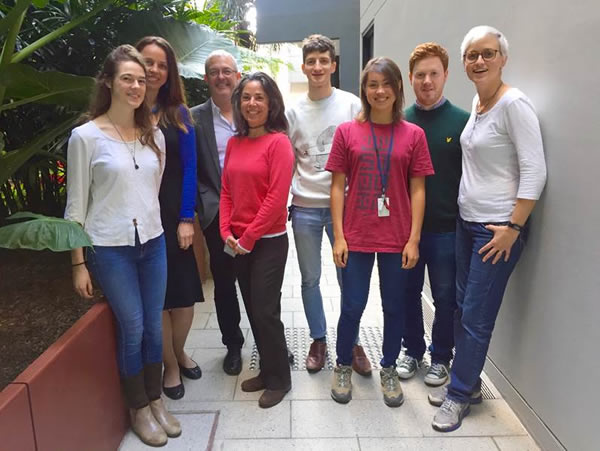AIFA announces 2017 research grants
4 December 2017:
 The AIFA Board is pleased to announce that a project entitled “A new approach to overcome a childhood autoinflammatory disease” led by Dr Marcia Munoz of the Garvan Institute of Medical Research has been chosen as the recipient of a $30,000 AIFA research grant. This brings the total AIFA grant figure to $130,000 in the last 4 years.
The AIFA Board is pleased to announce that a project entitled “A new approach to overcome a childhood autoinflammatory disease” led by Dr Marcia Munoz of the Garvan Institute of Medical Research has been chosen as the recipient of a $30,000 AIFA research grant. This brings the total AIFA grant figure to $130,000 in the last 4 years.
A NEW APPROACH TO OVERCOME A CHILDHOOD AUTOINFLAMMATORY DISEASE
Mevalonate kinase deficiency (MKD) is a lifelong autoinflammatory disease that usually appears in infancy. It is characterised by regular episodes of fever often accompanied by rashes, headaches, joint pain, swollen lymph nodes, vomiting and diarrhea.
 Marcia Munoz PhDDr Marcia Munoz of the Garvan Institute of Medical Research is undertaking research that could lead to a new treatment for MKD that would revolutionise the lives of children and adults with the disease. Dr Munoz and her team have been awarded an AIFA grant of $30,000 to help support this important research.
Marcia Munoz PhDDr Marcia Munoz of the Garvan Institute of Medical Research is undertaking research that could lead to a new treatment for MKD that would revolutionise the lives of children and adults with the disease. Dr Munoz and her team have been awarded an AIFA grant of $30,000 to help support this important research.
MKD is caused by mutations in an essential enzyme, mevalonate kinase. This disrupts a process called protein prenylation that is required for the function of all cells, including those in the gastrointestinal tract. According to Dr. Munoz, exactly how loss of protein prenylation leads to inflammation in MKD is still unknown; and treatments aim to dampen the inflammatory symptoms rather than target the cause of the disease. Current treatments require regular injections, which are expensive, ineffective in many patients, and do not reverse all of the symptoms.
The research team at the Garvan Institute have recently used gene editing to develop the first genetic mouse models of MKD. Analysis of tissues show that the mice with MKD have a leaky gut barrier in the wall of the intestine that could trigger inflammation in the gut as well as cause activation of the immune system, giving rise to the inflammatory symptoms. They have developed a method in the lab to use a simple lipid supplement to bypass the mutations and restore normal protein prenylation in mice with the MKD mutation. They will then determine whether it will return gut function to normal.
Dr Munoz says “this allows us to test for the first time an innovative new approach to restore the metabolic deficiency and prevent inflammation. These studies offer the exciting prospect of a dietary supplement or oral medication that could completely prevent the onset of inflammation in MKD. Treatments like this would be a major improvement over existing treatments and would constitute a major breakthrough in the lives of patients, particularly children, with a potentially fatal immune disease.”

From left: Kristen Perry (student), Julie Jurczyluk (research assistant), Prof Mike Rogers (lab head), Marcia Munoz (PhD), Oliver Skinner (student), Alicia Rios-Wilks (student), Niall Byrne (PhD), Mayan Amiezer (student).
AIFA is proud to recognise the importance of the work of Dr Munoz and the research team.
AIFA grant applications for next year will open in January 2018. Information about this project and previously funded projects can be found on our website www.allergyimmunology.org.au/projects

